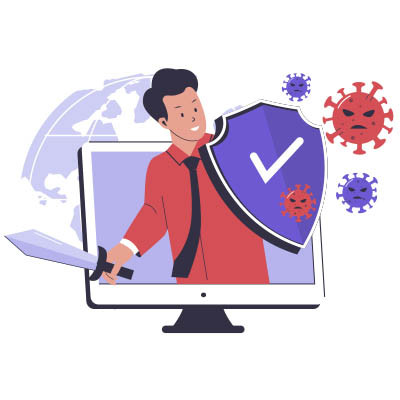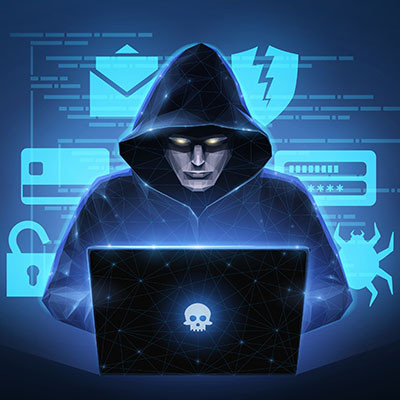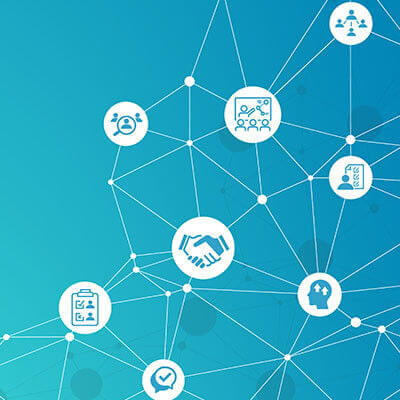Ferrum Technology Services Blog
If you are a frequent reader of this blog, you’ve seen articles about blockchain before. This week we thought we’d go a different direction and take a look at the question of whether or not cryptocurrency, a construct made possible by blockchain technology, should be made taxable by state, federal, and international lawmakers. Let’s take a look at blockchain, its role in cryptocurrency, and whether or not taxation is on the agenda down the road.
All businesses have one key vulnerability that cybersecurity threats exploit: their employees. Your business has this vulnerability, too, even if you haven’t considered it. Just like any vulnerability, however, there is a patch, and it comes in the form of education. With an appropriate knowledge base, your team can effectively become a human firewall against any potential threat.
Businesses today need to worry about people outside their business trying to break into their network and steal their data. Unfortunately, that’s not the only direction that theft can come from. In this week’s blog, we’ll take a look at the types of technology theft you need to be aware of inside of your company and what you can do about it.
If you don’t consider your job in terms of the technology you use, you may be missing out on just how much it has evolved in a relatively short time. Many people of different ages work today, and in this month’s newsletter, we thought we’d take a look at how some people view and interact with their professional technology.
Being a part of the workforce today comes with its share of challenges. Various stressors, both related to work and outside of it, can significantly affect an employee's performance. Therefore, it's crucial for companies to prioritize their team's well-being, and one effective approach is by embracing and promoting the use of technology to make workers’ tasks easier to manage.
Making IT decisions while balancing the user experience—including their complaints—can be exhausting. As a decision maker for your business, you have a budget to consider, as well as a timeline to manage. You’ll have to say no, which no one likes to hear, but it’s a necessary part of running your organization effectively.
Remote work has changed the way that businesses approach normal operations. Due in large part to the disruptions of the past couple of years, remote work has become a staple of the business environment, and while you might hear stories of businesses pushing hard to return to the workplace, the reality is that they are the exception rather than the norm.
You and your employees are likely exhausted from dealing with technology day in and day out. Even if it is what allows businesses to flourish, you still might want some time away from it from time to time. When it feels like too much, know that a digital detox can be a valid way of temporarily moving away from technology—even in the workplace.
While sitting all day might sound appealing at first glance (after all, who doesn’t like sitting?), it’s not something that our bodies are designed to do. Sitting, as a result, can have considerable negative consequences on our overall health when done in excess. It doesn’t have to be hard to fit a workout into your day, though; you can do these simple desk-ercises right from your office to combat the creep of becoming too sedentary.
Cybersecurity is complicated, with countless moving parts that all contribute to a well-protected network. This includes password changes, multi-factor authentication, and policies and procedures that could make the average workday a headache for the average office worker. Cybersecurity burnout is a real thing, and it’s becoming a major problem for businesses that don’t approach it intentionally.
We focus a lot of our attention on securing our clients’ computing infrastructures from the large amount of threats that are out there. We look to legitimately protect the entire network and infrastructure with our tools and expertise. The hackers, on the other hand, understand that they are more apt to be successful if they target certain users of your organization. Let’s look at a potential profile of someone that a savvy hacker would like to target.
Back during the holiday season, the Federal Trade Commission shared some data that showed that members of Generation X, Millennials, and Generation Z are all more likely to fall for online shopping scams than those over the age of 60…and not by a little, either. Those under that age are apparently 86 percent more likely to fall for these scams.
All companies have policies in place which govern how their employees use their technology, so it makes sense that any new employees should be onboarded in accordance with these expectations. Let’s go over how you can make sure your new employees know and understand your organization’s policies as they relate to business technology.
Technology is a major player in today’s business environment, and in most cases, companies have someone in their executive suite whose sole purpose is overseeing their technology systems. This individual—the Chief Information Officer, or CIO—is incredibly important to the everyday operations of businesses.
Remote work might have been crucial in the face of the pandemic, but now that companies are bringing employees back to the workplace, many are pushing back. While we can of course assist with your implementation of remote work technologies, there might be more reason to consider allowing for remote work. This doesn’t come from just us; it also comes from industry experts.
Most people will spend about one-third of their lives at work. Naturally, this large amount of time spent away from home can lead to a lot of stress. Emotions can overwhelm your employees and lead them to experience negative side effects that could impact their physical and mental health. Let’s examine some ways you can minimize the workday stressors that your employees may suffer from.
Worker burnout is more prevalent than ever, and it can lead employees to experience negative effects such as stress, exhaustion, depression, and frustration. Do you see any of these symptoms in your IT workers? Let’s take a closer look at how burnout is impacting the IT industry and your IT talent, as well as some ways you can address it.




















